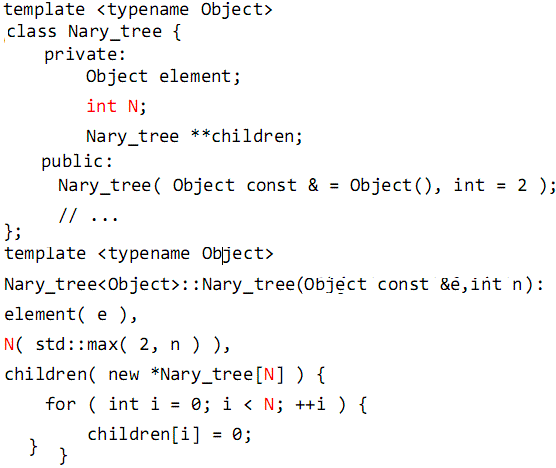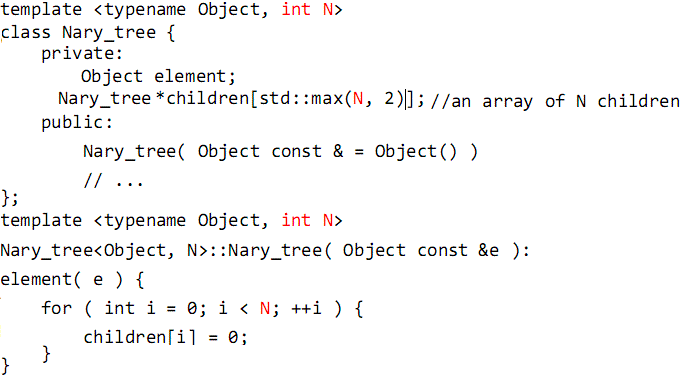General N-ary Trees Implementation

However, this requires the allocation of dynamic memory in all cases. An alternate design is to use General N-ary Trees Implementations:
{`
General N-ary Trees Implementation < typename object, int N>
class Nary_tree{
private:
object element;
Nary_tree * children [std::max(N,2)|];//an array of N Children
public:
Nary_tree (object const &e );
element ( e) {
for (int i = 0; i < N; ++i) {
children[i] = 0;
}
}`}

n this case, we could create an N-ary tree as follows
![]()


